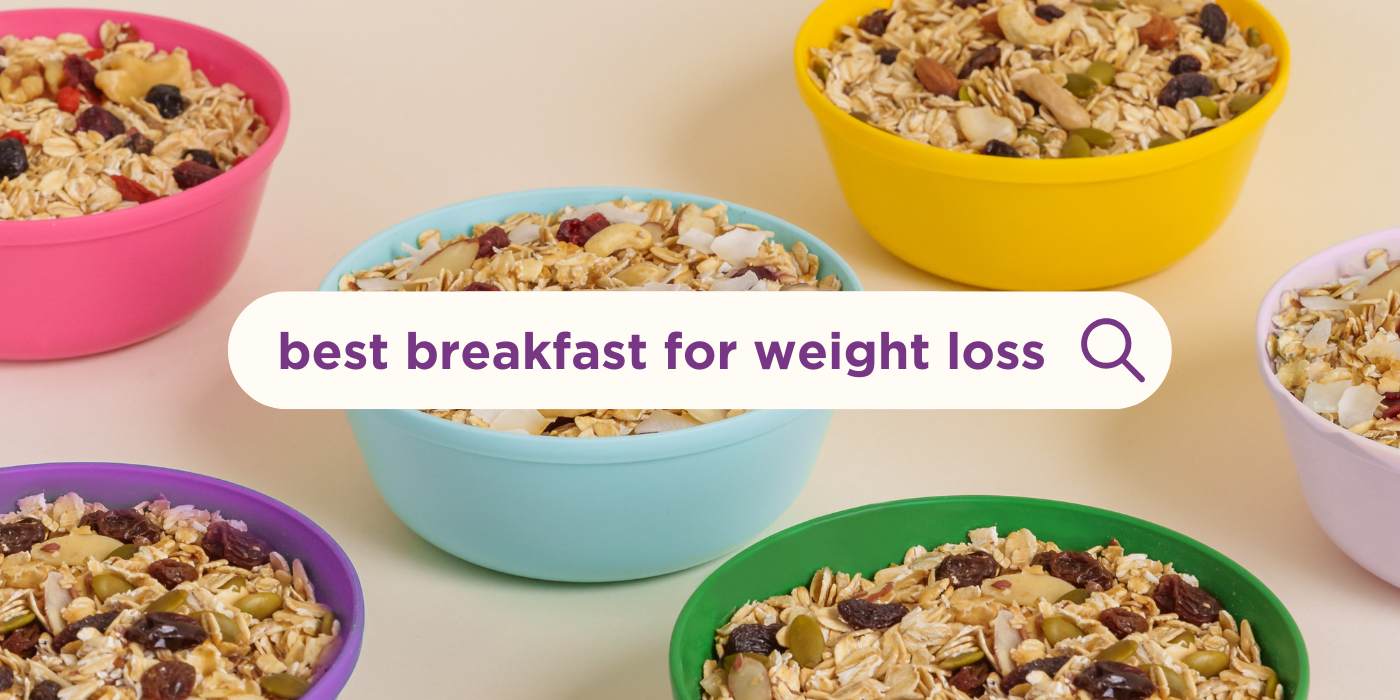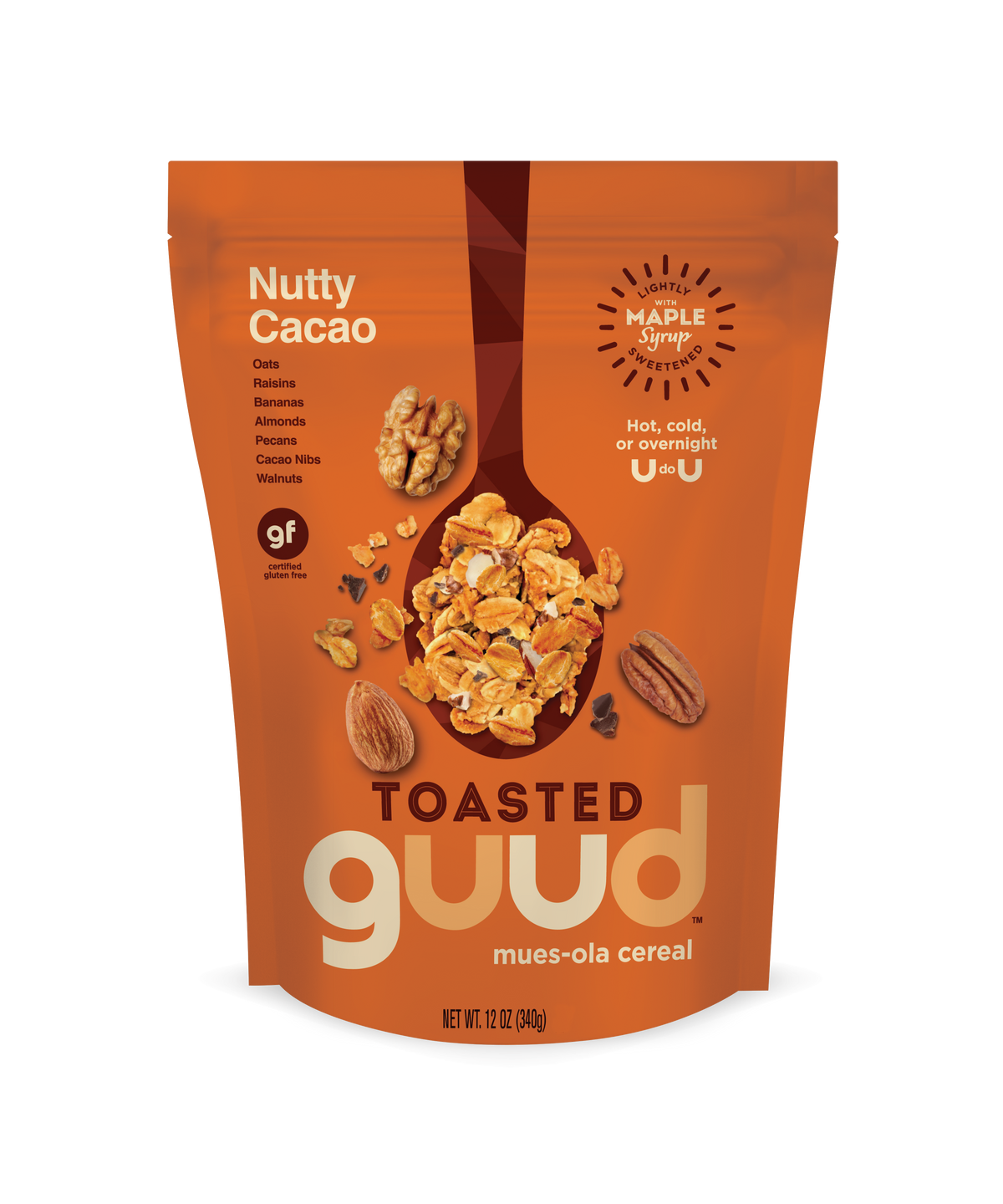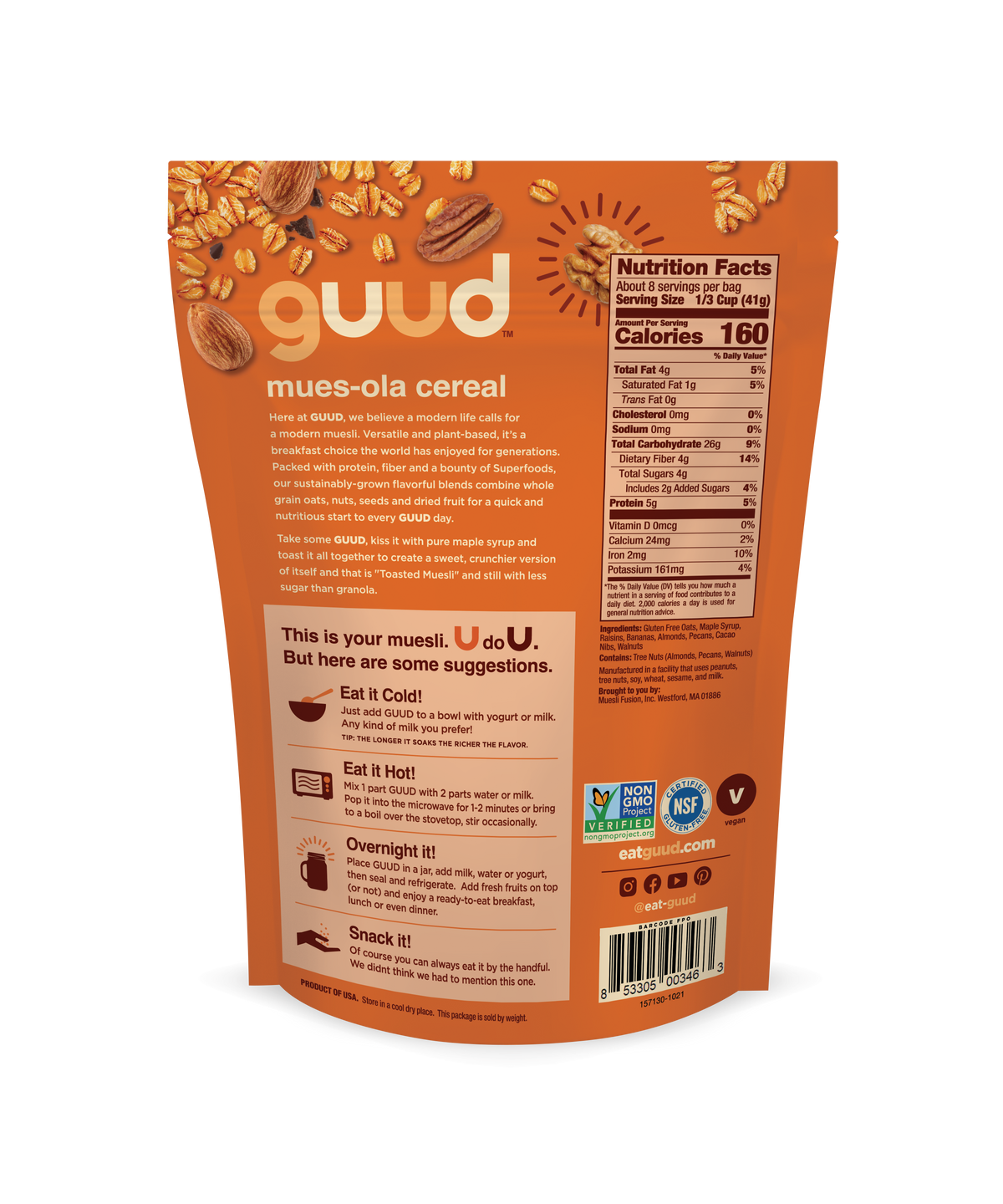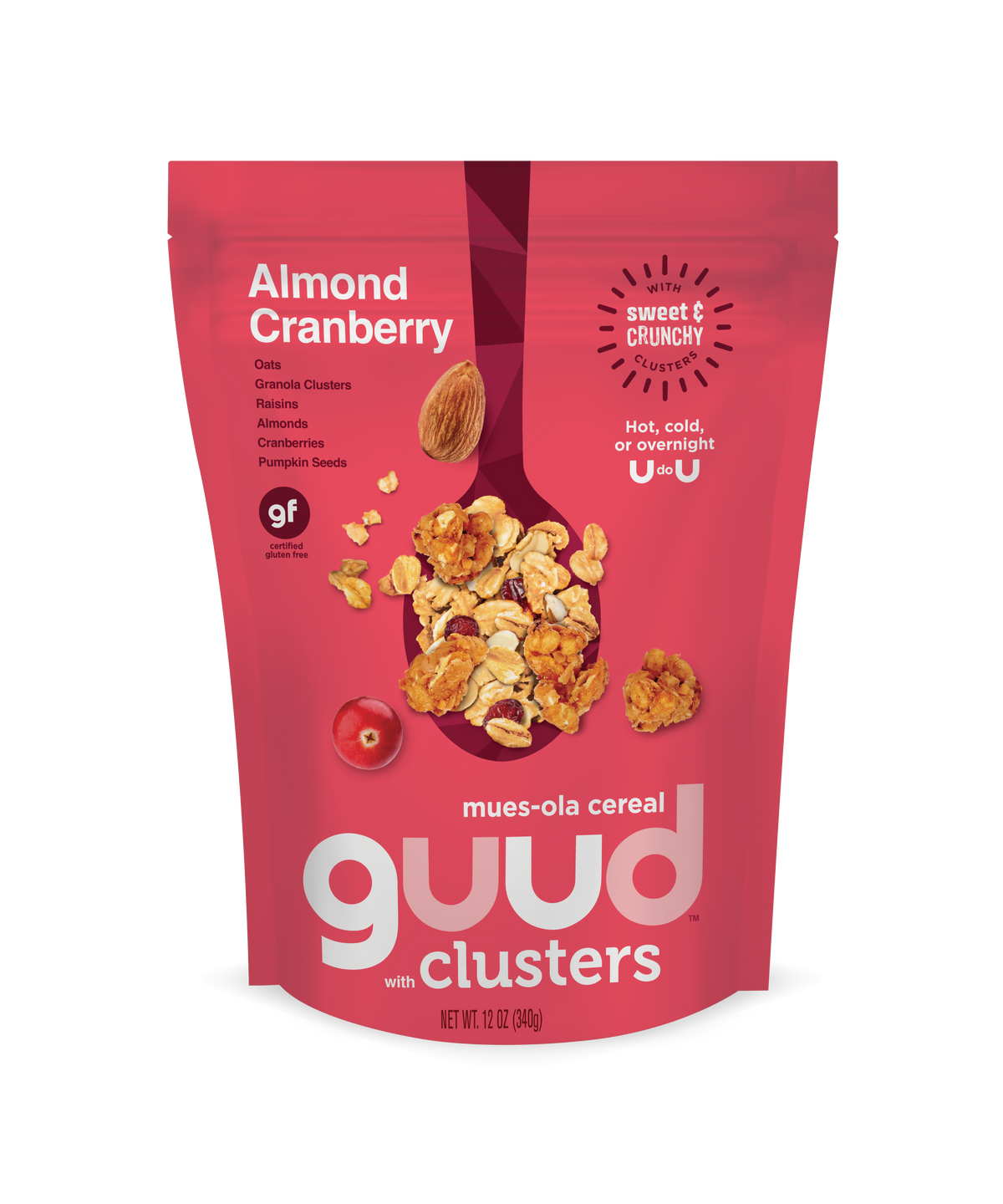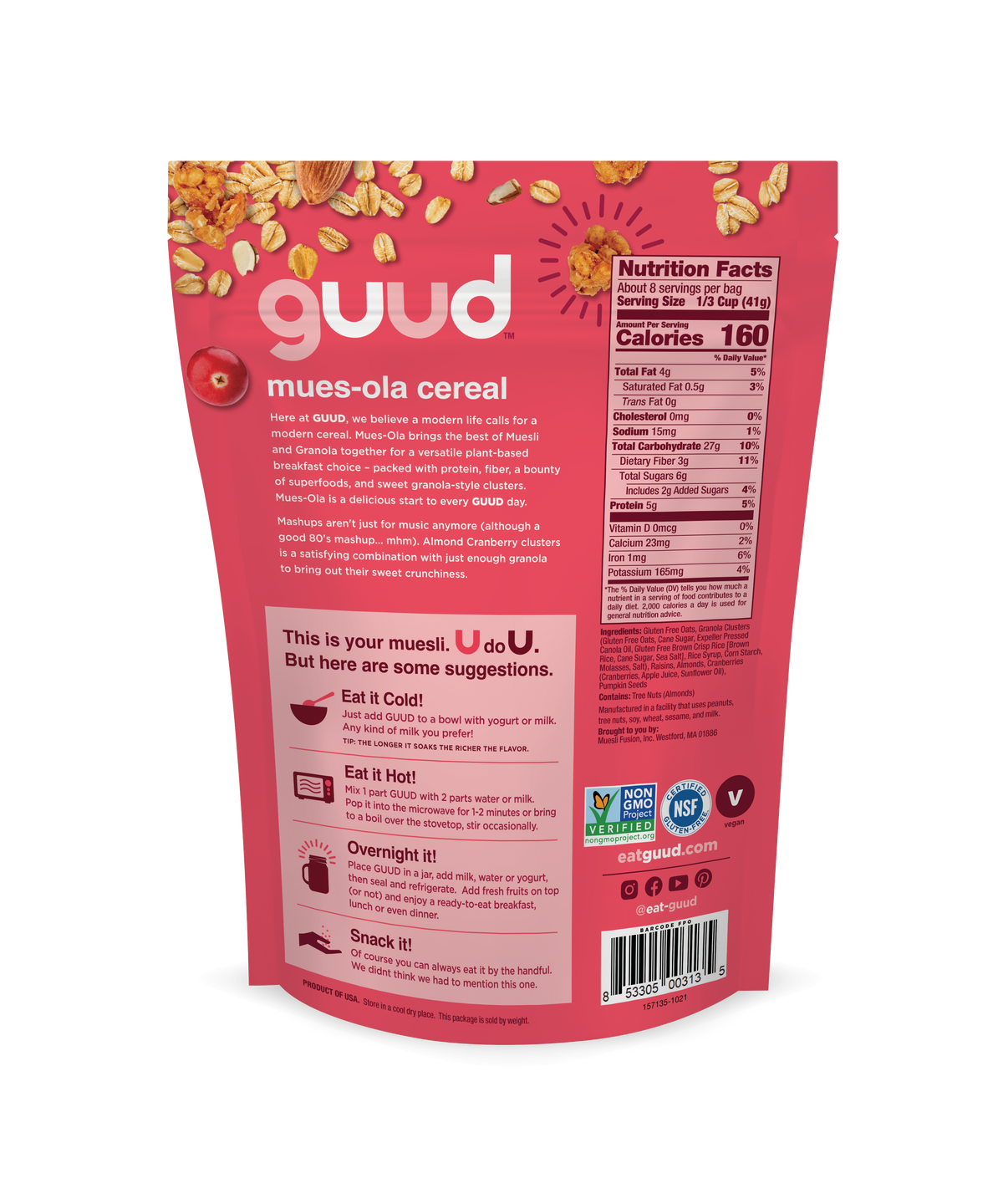Take a walk down the cereal aisle in any large grocery store and you're bound to come across dozens of options, including both granolas and mueslis. So what is the difference between granola and muesli?
While these two do have several things in common, they're definitely not the same thing. Both are made with ingredients such as oats, dried fruit and nuts — however the main difference is that granola is much higher in sugar, and often contains more calories and added oils too.
At GUUD, we believe in the power of eating whole foods and a low-sugar diet, which is why we stand behind choosing our cereals over traditional granola.
Let's look closer at how these two products differ, their similarities, plus how to enjoy muesli as a healthier start to your day.
Similarities Between Granola and Muesli
Granola is a crunchy type of breakfast cereal that's made with oats, nuts, and usually oil, honey and other sweeteners. These ingredients are baked, resulting in granola's crisp texture.
The most common way to eat granola is with milk (just like other cereals), yogurt, or on its own as a snack.
While granola might be pretty delicious, unfortunately it's relatively high in calories and added sugar, even if you only eat a small portion. The average granola in supermarkets contains about 250 to 300 calories (and about 15 grams of sugar) for just one ½ cup serving— and that's without milk or any other ingredients!
If you eat a serving of granola with one cup of regular milk, you're looking at a breakfast or snack that has about 400+ calories and more than 25 grams of sugar.
Muesli is similar to granola in that it's made with rolled oats, dried fruit, nuts and seeds. However, as explained more below, muesli is lower in sugar and other additives, plus more versatile.
3 Key Differences between Muesli and Granola
Although they share some of the same ingredients, muesli contains fewer calories, less sugar and more nutrients compared to granola. Here's more about how these two cereals differ, and what makes muesli a healthier choice:
1. Granola is higher in calories and sugar
Granola is closer to conventional sugary cereals than it is to muesli. While a serving of granola has about 250+ calories, muesli has about 150 to 250 calories, depending on the kind (types with more nuts and seeds will have more calories due to their supply of healthy fats).
Granola is baked with various sugars and sweeteners, usually including honey, cane sugar and sometimes high fructose corn syrup (if you choose a more processed brand). It also usually has added oils. This helps to make granola not only taste sweet, but also makes it crunchy once it's cooked.

On the other hand, GUUD mueslis have either NO added sugar or a very little amount of added sugar (about 1 or 2 grams per serving).
How does muesli taste? Great! It has natural sweetness thanks to the flavor of oats and dried fruit, so you won't miss all the unnecessary added sugar (especially once you're accustomed to eating natural foods).
For those following a low-sugar diet or lower-carb diet, muesli makes a much better choice. And if you're looking to slash calories from your diet, choosing a lower-calorie muesli without any added oil can help.
2. Muesli contains fewer ingredients and less oil/additives
Muesli is made with whole food ingredients including: whole grain rolled oats, nuts like cashews and almonds, dried fruit like raisins, apples or coconut and seeds like chia and flax.

Together, these ingredients make musei packed with nutrients, including: fiber, prebiotics, plant-based protein, healthy fats, and minerals such as magnesium, zinc, copper, selenium and phosphorus. This means that muesli provides health benefits for digestion, immune support, heart health, cognitive function and more.
Unlike granola, muesli is not baked with oils or flavorings. All the delicious flavors are from plant-based combinations of fruits, nuts, and seeds.
Granola also contains some fiber, protein and healthy fats, but it's generally less nutrient-dense based on how many calories it has. Many granolas are also somewhat processed and made with preservatives and additives (see below for an example of an ingredient list from a popular brand of granola).
 source
source
3. Muesli is more versatile
Unlike granola and other cereals, muesli can be enjoyed cold, hot, in "overnight oats" or even baked into healthy homemade recipes like muffins, energy bars and cookies. Muesli is not baked like granola is, so its texture is less crispy and more versatile in terms of ways to prepare it.
Do you normally love the convenience of packing granola bars in your bag? Try making homemade muesli bars instead, which will keep you full thanks to their high content of fiber and protein.
For more clever and delicious ways to add muesli to your diet instead of sugary granola, check out this post for a complete guide on how to eat muesli.
If you love granola, there is a better choice
GUUD offers a new kind of cereal that is a great granola alternative. It’s called Mues-Ola - a combination of muesli and granola but with 80% less sugar than leading granola brands. Get yours today!

